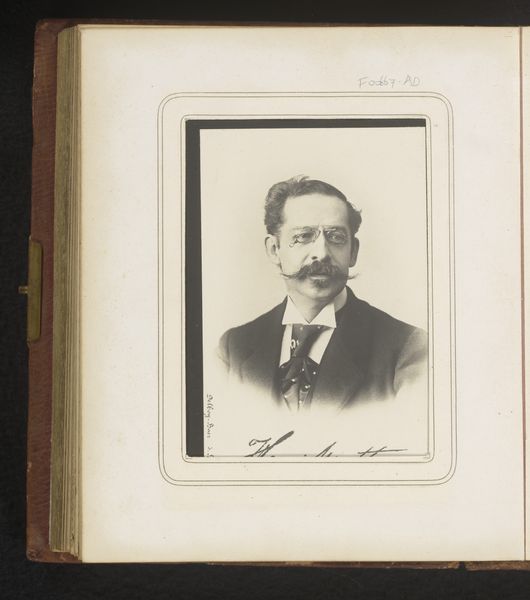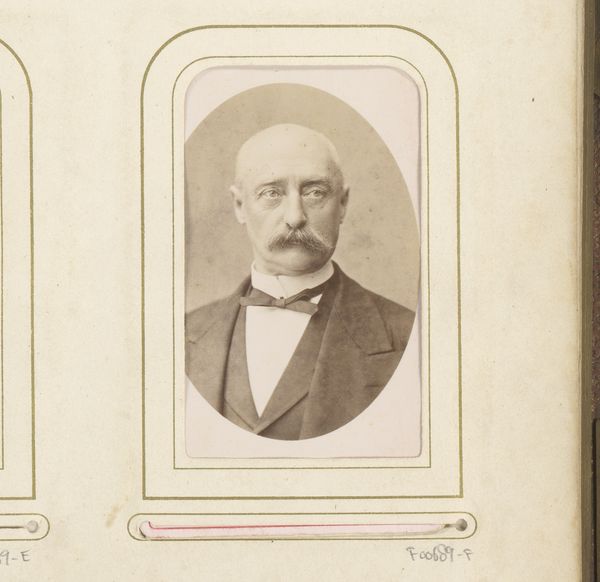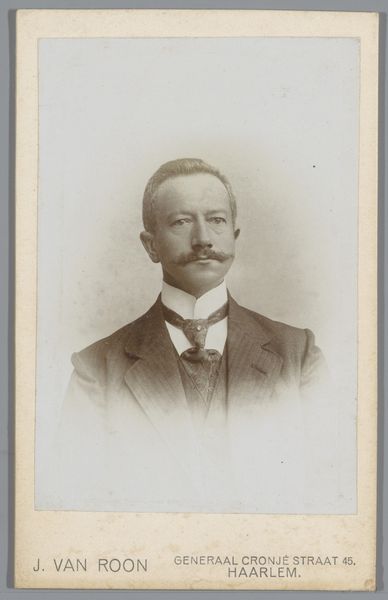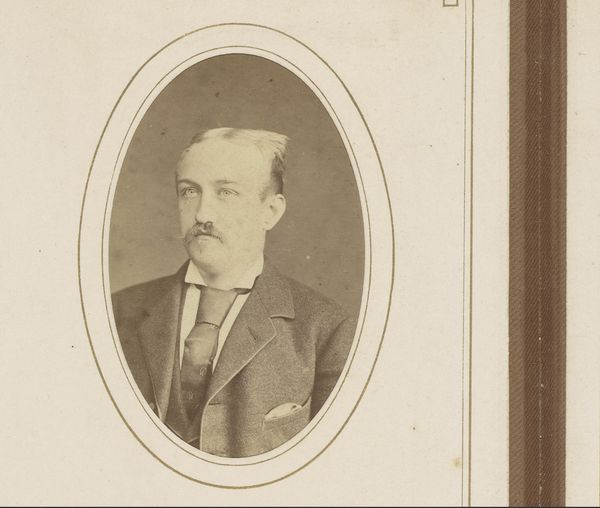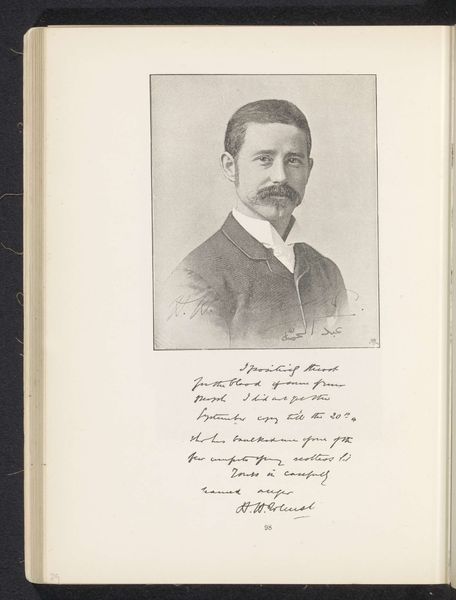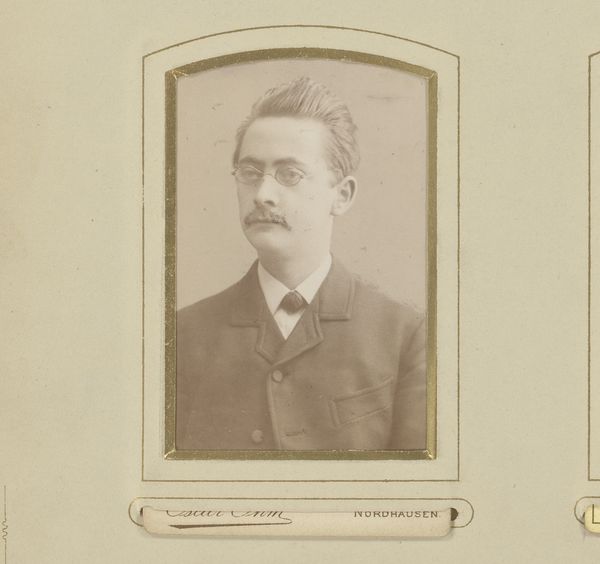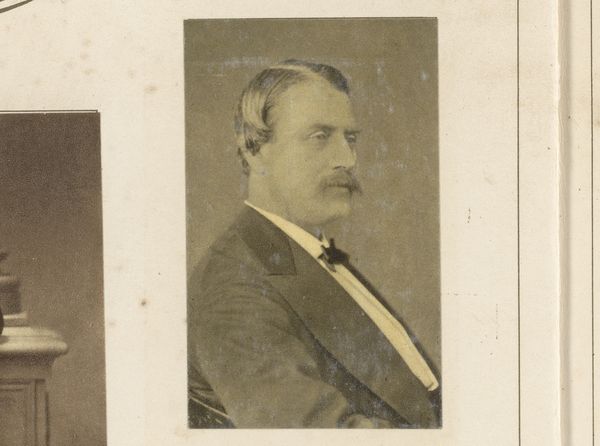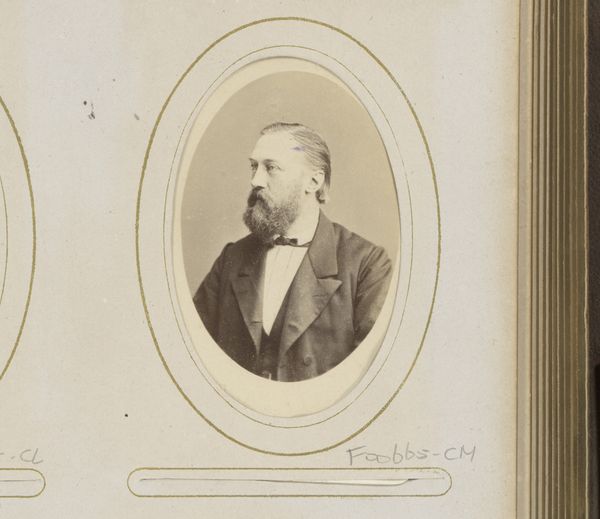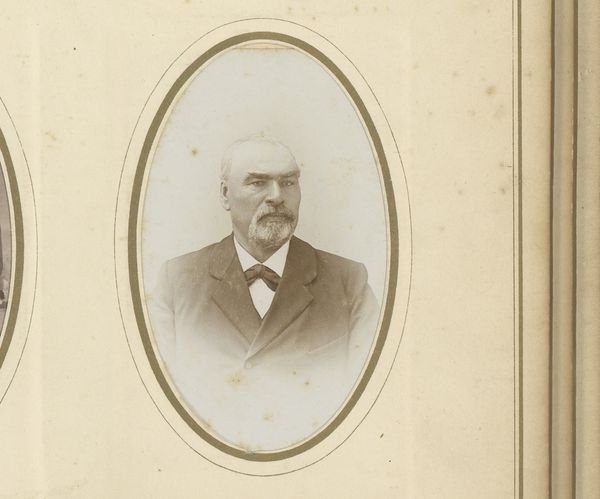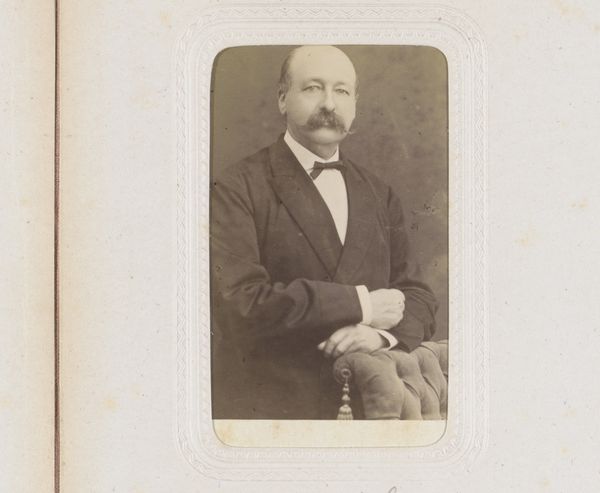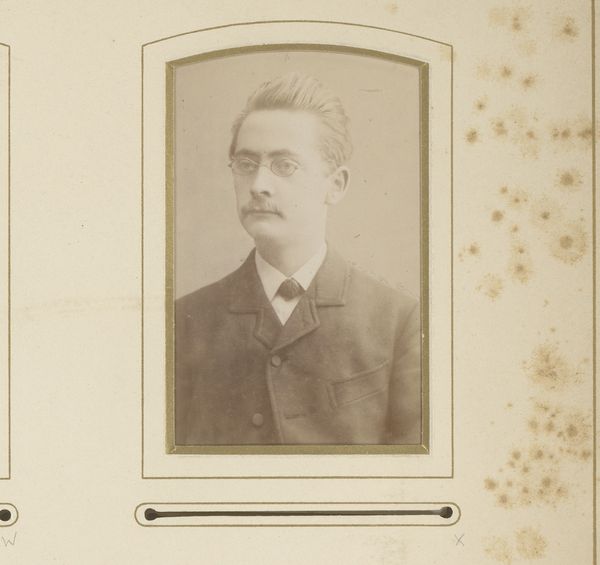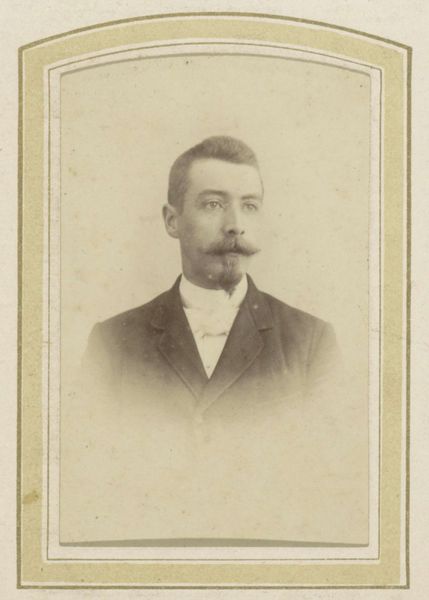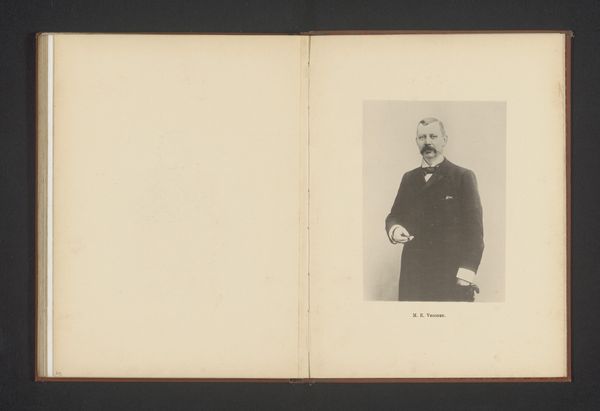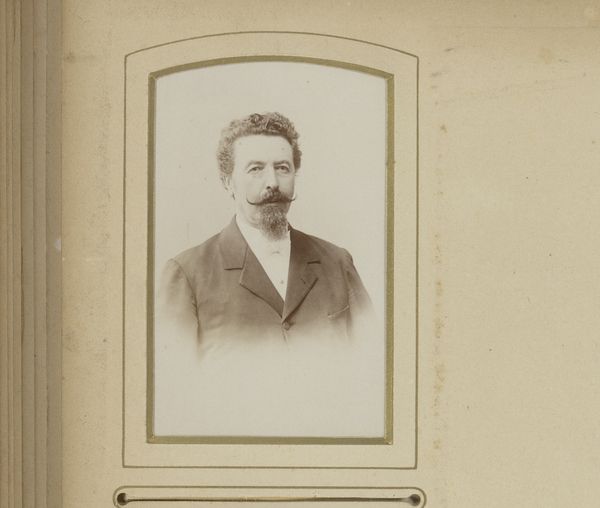
photography
#
portrait
#
photography
#
post-impressionism
#
academic-art
#
realism
Dimensions: height 79 mm, width 54 mm
Copyright: Rijks Museum: Open Domain
This small portrait of Pierre Waldeck-Rousseau is an example of early 20th-century photographic printing. Made using a chemical process on paper, the image captures the likeness of a prominent political figure. The material itself, photographic paper, was rapidly evolving at this time, becoming more accessible and transforming portraiture. Its matte surface absorbs light, creating a soft, almost painterly effect. What interests me is how such techniques democratized image-making, making portraits once reserved for the wealthy available to a broader public. Though often considered distinct from fine art, photography demanded both technical skill and artistic sensibility, playing an essential role in shaping social perceptions and cultural memory. The availability of photography, with its roots in industrial chemistry and optics, changed the landscape of representation. By understanding the material and the processes involved, we can appreciate the social impact of this seemingly simple image, questioning traditional hierarchies of artistic value.
Comments
No comments
Be the first to comment and join the conversation on the ultimate creative platform.
